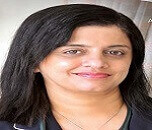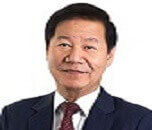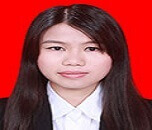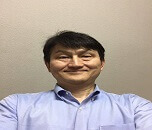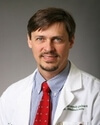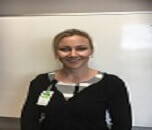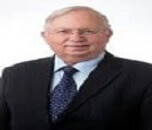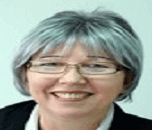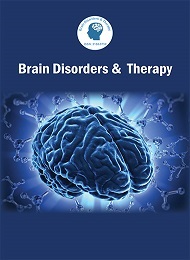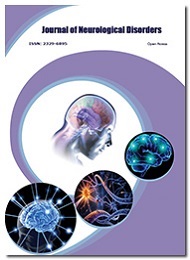Theme:
Euro Dementia-2023
The 4th european conference on dementia, alzheimers and neurological disorders "sincerely invites all members from across the world to attend the congress, which will take place in amsterdam, the netherlands, on november 24-25, 2023.
Euro dementia2023 expects to sharing novel thoughts and innovations among the experts, industrialists, and understudies from research spaces of psychology, scholastic researchers, teachers, and research. As the chief occasion, we have fabricated a programme considering your inclinations. We have not just extended the quantity of opportunities for you to organise with partners from over the world yet also introduced more drew in gatherings that will feature front line presentations, uncommon board conversations, and more energetic collaboration with industry pioneers, and trained professionals. Euro dementia 2023
Euro dementia 2023 is a clear discussion to bring together internationally renowned academics in the field of psychology, academic researchers, educators, researchers, instructive researchers, industry specialists, researchers to trade their thoughts regarding the state and advancements of the research, and it provides the most obvious opportunity to reach the largest social gathering of participants from around the world. Shows on the current state of treatment issues and the things that come with them that lead to the ruin of the general public should be directed, distributed, and updated. Without a doubt, this event promotes and prepares for global growth. The key components of this event include widely regarded speakers, the first late explorations, and updates
Everything a human body does, from breathing and keeping the heart pounding to picking up a pencil and operating a vehicle, is controlled by the cerebrum and sensory system. At the moment when the sensory system isn't working well, it can effect the whole body. Specialists in the nervous system devote a lot of their time to treating ailments that affect the brain and the sensory system. This may involve the spine, nerves, and brain. Conditions like brain aches, convulsions, multiple sclerosis, or formative postponements can be brought on by problems there. Specialists in the pediatric nervous system have some experience treating these problems in children.
Our creative and collaborative neonatal nervous system scientific team is dedicated to identifying and treating neurological illnesses that develop in newborns. Our team cares for children with a wide range of issues, from prenatally studied brain abnormalities to seizures and acquired brain injuries. We have a sizable, multidisciplinary team of medical professionals, scientists, and clinical students available to give your child their full attention. Our neonatal nervous system science group offers creative therapies both through our Fetal and Pregnancy Health Services and in our dedicated Neurology Neonatal Intensive Care Unit (NNICU), all with the goal of assisting infants in achieving their best wellbeing. These therapies range from pre-birth decisions to the most prompt assessment and care. Additionally, we provide extensive outpatient
There is clear doubt that dementia is not a specific infection. It's a generic word that describes a wide range of nuances associated with a decline in memory or other thinking abilities severe enough to impair a person's ability to carry out daily activities. Alzheimer's illness, vascular dementia, which happens following a stroke, is the second most basic dementia type.
- Dementia With Lewy Bodies
- Mixed dementia
- Creutzfeldt–Jakob Disease
- Parkinson’s Disease
- Mild cognitive impairment
- Frontotemporal dementia
- Normal pressure hydrocephalus
- Signs and symptoms of dementia
Track 4: Dementia risk factors
Analysts have found various qualities that expansion the danger of building up Alzheimer's infection. In spite of the fact that individuals with a family background of Alzheimer's illness are for the most part viewed as at an uplifted danger of building up the actual infection, numerous individuals who have family members with Alzheimer's sickness never build up the infection, and numerous without a family background of the sickness do get it.Much of the time, it is difficult to anticipate a particular individual's danger of the issue dependent on family ancestry alone. A few families with Creutzfeldt-Jakob illness, Gerstmann-Sträussler-Scheinker condition, or deadly familial sleep deprivation have changes in the prion protein quality, albeit these issues can likewise happen in individuals without the quality transformation. People with these changes are at altogether higher danger of building up these types of dementia.
Track 5: Prevention and treatment
Dementia is difficult to forestall, on the grounds that what causes it frequently isn't known. In any case, individuals who have dementia brought about by stroke might have the option to forestall future decreases by bringing down their danger of coronary illness and stroke. Regardless of whether you don't have these known dangers, your general wellbeing can profit by these techniques
- Try not to smoke.
- Stay at a solid weight.
- Get a lot of activity.
- Eat quality food.
- Oversee medical conditions including diabetes, hypertension, and elevated cholesterol.
- Stay intellectually alert by learning new side interests, perusing, or tackling crossword puzzles.
- Stay included socially. Go to local area exercises, church, or care groups.
- On the off chance that your PCP suggests it, take ibuprofen.
Alzheimer's infection is the most widely recognized kind of dementia, an overall term of cognitive decline and other intellectual capacities adequately extreme to meddle with regular daily existence. 60 to 80 percent of dementia cases are caused by Alzheimer's infection. Alzheimer's is definitely not an ordinary piece of maturing. The best realized danger factor is expanding age, and most of populace with Alzheimer's are 60 and more seasoned. Be that as it may, Alzheimer's isn't only an infection of mature age individuals.
- Risk Factors of Alzheimer’s
- Diagnosis of Alzheimer’s
- Treatments of Alzheimer’s
- Clinical Studies of Alzheimer’s
- Alzheimer’s disease Pathophysiology and Disease Mechanisms’
Maturing: Unable to recall a discussion or occasion that occurred a year prior, Unable to recollect the name of a colleague, Forgetting things and occasions often, Occasionally experience issues articulating words, You are stressed over your memory yet your family members are definitely not. Dementia Unable to review subtleties of exceptionally ongoing circumstances or discussions, not perceiving or knowing the names of individuals from family, Forgetting things all the more habitually, Frequent stops and replacements while discovering appropriate words to express.
- Neuro-anatomical changes in Ageing
- Risk factors of Cognitive decline
- Granulovacuolar Degeneration
- Changes in Cerebral Cortical microvasculature
- Advances of research in Ageing and Dementia
Track 8: Dementia Care Management
The continuous expanding of vascular dementia patients prompts both methodology, financial and medical services affiliation objectives. Various social protection systems have made case organization programs with a particular ultimate objective to propel dementia patients and watchmen care and organizations movement.
- Dementia Nursing care plan
- Music therapy in Dementia
- Dementia Physiotherapy
- Clinical features of dementia
- Dementia Therapeutic intervention
The continuous expanding of vascular dementia patients prompts both methodology, financial and medical services affiliation objectives. Various social protection systems have made case organization programs with a particular ultimate objective to propel dementia patients and watchmen care and organizations movement.
- Dementia Nursing care plan
- Music therapy in Dementia
- Dementia Physiotherapy
- Clinical features of dementia
- Dementia Therapeutic intervention
Track 9: Dementia risk factors
Analysts have found various qualities that expansion the danger of building up Alzheimer's infection. In spite of the fact that individuals with a family background of Alzheimer's illness are for the most part viewed as at an uplifted danger of building up the actual infection, numerous individuals who have family members with Alzheimer's sickness never build up the infection, and numerous without a family background of the sickness do get it. Much of the time, it is difficult to anticipate a particular individual's danger of the issue dependent on family ancestry alone. A few families with Creutzfeldt-Jakob illness, Gerstmann-Sträussler-Scheinker condition, or deadly familial sleep deprivation have changes in the prion protein quality, albeit these issues can likewise happen in individuals without the quality transformation. People with these changes are at altogether higher danger of building up these types of dementia.
Track 10: Early/Younger Onset Dementia
More youthful beginning can likewise be alluded to as beginning stage Alzheimer's. Individuals with more youthful beginning Alzheimer's can be in the early, center or late phase of the infection. Most of individuals with more youthful beginning have inconsistent Alzheimer's infection, which is the most widely recognized type of Alzheimer's and isn't ascribed to hereditary qualities
Track 11: Fronto-temporal Dementia (FTD)
Frontotemporal dementia (FTD) is a gathering of related conditions coming about because of the reformist degeneration of the worldly and front facing flaps of the mind. These zones of the mind assume a huge part in dynamic, conduct control, feeling and language.There are a few types of FTD that lead to somewhat extraordinary social, language and additionally engine indications. Because of the side effects, individuals with FTD are frequently misdiagnosed with Alzheimer's sickness, mental issues (like melancholy, hyper despondency, fanatical impulsive infection or schizophrenia), vascular dementia or Parkinson's illness.
Track 12: Geriatrics Dementia and Cognitive Disorders
As a novel discussion committed solely to the investigation of psychological brokenness, Dementia and Geriatric Cognitive Disorders focuses on Alzheimer infection, Parkinson illness, Huntington sickness, and other neurodegenerative infections. The diary draws from assorted related examination teaches, for example, psychogeriatrics, neuropsychology, clinical nervous system science, morphology, physiology, hereditary qualities, atomic science, pathology, natural chemistry, immunology, pharmacology, and pharmaceutics. A solid accentuation is put on the distribution of examination discoveries from creature contemplates, which are supplemented by clinical and remedial experience to give a general enthusiasm for the field.
Our inventive and collective neonatal nervous system science group is given to the examination and treatment of neurological sicknesses that happen in the infant time frame. Our group treats kids with a wide assortment of problems, from seizures and obtained mind injury to prenatally analyzed cerebrum abnormalities. We have a huge, interdisciplinary group of doctors, medical caretakers, scientists and clinical students from numerous claims to fame accessible to really focus on your kid. From pre-birth determinations to the most punctual assessment and care, our neonatal nervous system science group gives inventive therapies both through our Fetal and Pregnancy Health Services and in our devoted Neurology Neonatal Intensive Care Unit (NNICU) all determined to assist infants with accomplishing their best wellbeing. We likewise give extensive outpatient follow-up administrations after the quick infant time frame, both for children really focused on in our Neonatal Intensive Care Unit and those really focused on at different emergency clinics.
The cerebrum and sensory system are the center of all that the human body does, from breathing and keeping the heart thumping to getting a pencil and driving a vehicle. At the point when the sensory system isn't working right, it can influence the whole body. Nervous system specialists are specialists who spend significant time in treating conditions that influence the cerebrum and sensory system. This can incorporate the cerebrum, nerves, and spine. Issues there can cause conditions like cerebral pains, seizures, numerous sclerosis, or formative postponements. Pediatric nervous system specialists have some expertise in treating these conditions in kids.
Track 15:Prevention and treatment
Dementia is difficult to forestall, on the grounds that what causes it frequently isn't known. In any case, individuals who have dementia brought about by stroke might have the option to forestall future decreases by bringing down their danger of coronary illness and stroke. Regardless of whether you don't have these known dangers, your general wellbeing can profit by these techniques
- Try not to smoke.
- Stay at a solid weight.
- Get a lot of activity.
- Eat quality food.
- Oversee medical conditions including diabetes, hypertension, and elevated cholesterol.
- Stay intellectually alert by learning new side interests, perusing, or tackling crossword puzzles.
- Stay included socially. Go to local area exercises, church, or care groups.
- On the off chance that your PCP suggests it, take ibuprofen.
Track 16 :Recent Advancement in Treating Dementia
Early Detection and definite investigation are basic, as vascular dementia is at any rate mostly preventable. Ischemic changes in the frontal cortex are not really irreversible, anyway the specific patient with vascular dementia can encounter seasons of robustness or even gentle changes. Since stroke is a fundamental piece of vascular dementia, the chief perspective is to prevent new strokes. This is attempted through lessening of stroke chance parts, for instance, hypertension, high blood lipid levels, atrial fibrillation, or diabetes mellitus.
- Primary mental health care and nursing
- Psychopharmacological treatment
- Advanced drugs for dementia
- Cognitive behavioral therapy
- Family therapy in nursing
Track 17: Risks of corona on Nervous system
The infection that causes COVID-19 taints individuals, everything being equal. Notwithstanding, proof to date recommends that two gatherings of individuals are at a higher danger of getting serious COVID-19 infection. These are more seasoned individuals (that is individuals more than 60 years of age); and those with basic ailments (like cardiovascular infection, diabetes, ongoing respiratory illness, and malignant growth). The danger of extreme infection slowly increments with age beginning from around 40 years. It's significant that grown-ups in this age range ensure themselves and thus secure others that might be more vulnerabl
Vascular dementia happens when vessels which are providing blood to the mind gets hindered or get limited. Strokes happens when the stockpile of blood which convey oxygen to the cerebrum will out of nowhere block. Nonetheless, not all individuals with stroke will create vascular dementia.
- Vascular Dementia Prognosis
- Young onset Dementia
- Multi-infarct Dementia
- Mixed Dementia
- Parkinson Dementia
- Advances in Vascular Dementia therapy.
The size of the global market for dementia care products was projected to be US$ 25 million in 2021 and is anticipated to increase at a CAGR of 6.7% from 2023 to 2032.Dementia or Alzheimer's disease typically has disruptive effects on memory as well as detrimental effects on cognitive capacities that also affect daily activities. The requirement for patient support rises as the condition gradually worsens. For patients with this disease, a variety of dementia care products and aids are created to make their lives simpler.The dementia care product category includes items for memory games and activities, daily reminders, bathroom safety, dining aids, communication, specific clothes, and personal safety.
The affordability of dementia care monitoring equipment is severely hampered for patients in developing nations. Currently, patients from lower socioeconomic backgrounds cannot afford these gadgets.
Additionally, since dementia monitoring is an intrusive treatment that occasionally necessitates surgery, it is a demanding operation that needs very qualified and skilled medical experts. Therefore, the market's expansion is constrained by a scarcity of qualified medical personnel.
Adverse effects of medications
Numerous medications that were once used to treat dementia have now been discontinued by regulators due to their numerous negative side effects. Such setbacks for the pharmaceutical industry will make it more difficult for the market for dementia care products to expand
Conference Highlights
- Pediatric Neurology
- Neonatal Neurology
- Dementia
- Dementia risk factors
- Prevention and treatment
- Alzheimer’s Disease
- Dementia and Aging
- Dementia Care Management
- Dementia Nursing
- Dementia risk factors
- Early/Younger Onset Dementia
- Fronto-temporal Dementia (FTD)
- Geriatrics Dementia and Cognitive Disorders
- Neonatal Neurology
- Pediatric Neurology
- Prevention and treatment
- Recent Advancement in Treating Dementia
- Risks of corona on Nervous system
- Vascular Dementia
To share your views and research, please click here to register for the Conference.
To Collaborate Scientific Professionals around the World
| Conference Date | November 24-25, 2023 | ||
| Sponsors & Exhibitors |
|
||
| Speaker Opportunity Closed | |||
| Poster Opportunity Closed | Click Here to View | ||
Useful Links
Special Issues
All accepted abstracts will be published in respective Our International Journals.
Abstracts will be provided with Digital Object Identifier by



